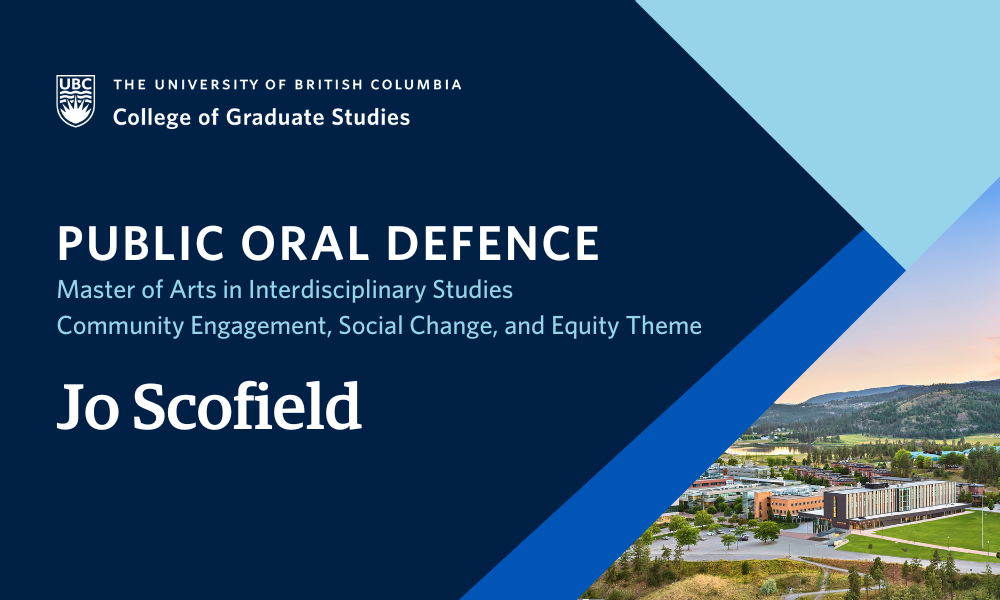
- This event has passed.
Thesis Defence: The Adoption of Inclusive Language in Abortion Related Activism
December 6, 2023 at 1:00 pm - 5:00 pm

Jo Scofield, supervised by Dr. Sue Frohlick , will defend their thesis titled “The Adoption of Inclusive Language in Abortion Related Activism” in partial fulfillment of the requirements for the degree of Master of Arts in Interdisciplinary Studies (Community Engagement, Social Change, and Equity Theme).
An abstract for Jo Scofield’s thesis is included below.
Defences are open to all members of the campus community as well as the general public. Please email susan.frohlick@ubc.ca to receive the Zoom link for this defence.
ABSTRACT
The purpose of this study is to produce accessible knowledge about strategies for implementing gender-inclusive terminology within pro-choice activism in Canada and understand resistance to this implementation. Traditionally, abortion and reproductive healthcare has used ‘woman’ to indicate everyone who can get pregnant, which excludes trans, non-binary, and other gender diverse people who can get pregnant. The shift to inclusive language, as opposed to gendered language, is essential in abortion related activism. Using language such as pregnant person instead of woman is also more accurate as not all women have the capacity to get pregnant, and not all people who get pregnant are women. Neither the need to access abortion care, nor the need to advocate for it, is limited to women. I conducted interviews with people from a variety of abortion related activism groups in Canada to learn about their experience with language changes and what language they use.
Changing language used in abortion related activism is an important part of changing language in reproductive healthcare overall. There is significant overlap between the people and resources of activist groups and care providers in reproductive healthcare. This makes implementing inclusive language in all areas of reproductive healthcare and related activism essential to ensuring that everyone who has the capacity for pregnancy can access care in a respectful and affirming environment. My interviews showed that organizations who changed their language to be inclusive saw little to no backlash from transphobic groups or community members. Organizations which began with, and continue to use, inclusive language still encounter difficulty in the gendered nature of many available educational and informational resources. Overall, those most likely to notice the use of inclusive language were trans and non-binary people who were excluded by the use of gendered language in the past. There was no evidence of anyone feeling excluded by the use of inclusive language. This research and the documentation used to conduct it will be made publicly available to help with future work and language changes.